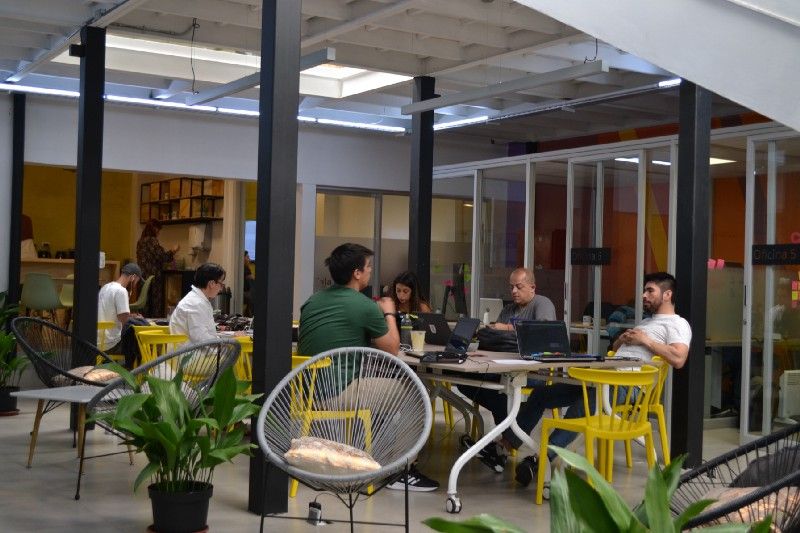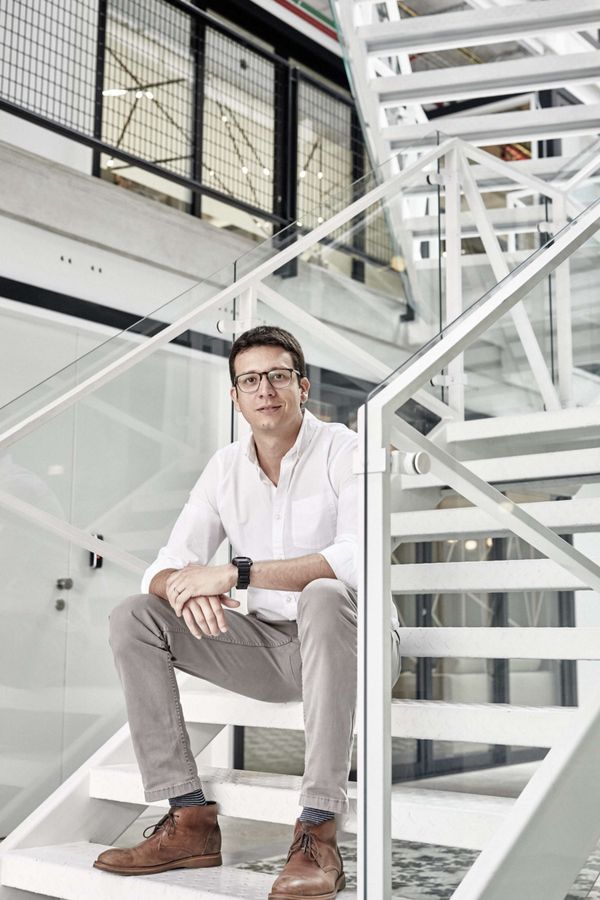Puedes leer este artículo en español aquí.
Constanza Clemo, Communication Manager at Casa W in Concepción, Chile, does not like to telework — and apparently I am the only one who calls her Constanza because everyone else calls her Coti.
“Before COVID-19 I didn’t like remote-working, but I’ve obviously also never spent [at the time of the interview] 34 days in quarantine.” Chile is managing their lockdowns and quarantining in a different way than most countries; lockdowns are based on location: when a peak is detected, that particular spot is confined.
The story behind Coti’s confinement is somewhat peculiar; she found out that she needed to isolate herself when she received a phone call informing her that she’d been at a birthday part with someone infected with COVID-19. “I made a bit of a fuss over the phone and when I hung up I realized that all the people sitting near me had slipped their chairs away. It was so strange!” Iván Fierro, CEO of Casa W, sent her home and when her individual quarantine period was nearing the end, she was quarantined again — thus extending her confinement.
When she’s not working or tending to her Instagram account Coti wonders, “When we get together, will there be hysteria? How much touching will there be? We miss hugging, having contact with other people but…. Will we greet a stranger with a kiss or will we only do it with our closest friends? ”In the areas where we show affection with friends and acquaintances in a more physical way, I think I can confirm that these are the things we are all looking forward to when there is a vaccine that allows us to live as close to the world as we had before COVID-19.

As for the space itself, Coti tells us that at Casa W they open two hours a day so that their community members can grab their things. As in so many other spaces, members who have 24/7 access can continue to access the space, but Casa W obviously works with the community to follow the guidelines set by the Government of Chile and the team leads by example — even when it comes to working from home. “No one wants to risk (going outside) as long as everything is uncertain,” Coti tells us.
To work with their members, they turned toward something that spaces everywhere are trying out: “We have moved our services online. We can’t be together physically but I can help you get a financial lifeline, attend a webinar, or we just find the time to chat with our members to see how they are doing.”
One of the things the Casa W staff does beyond offering these services through digital channels is monitoring their use by the community. “When a person does not participate we want to know why. It may simply not interest you, but we make sure there are no technical reasons why you aren’t using them. We don’t get anything out of having digital services if the community doesn’t use them. ”
They ask until they find the specific reason why that person is not connected with the activities or the community. There are people who are more reserved and, perhaps, find it difficult to admit that they need help. But then there’s Pablo, a project executive who supports the entrepreneurs who are part of WGLOBAL, an program to accompany entrepreneurs throughout this process.
You may wonder if this work has paid off, beyond knowing that they are doing the right thing. Working the community and empathizing with the client has allowed Casa W to maintain 85% of their members. “Obviously we have spoken one-on-one to know the specific situation of each member and we have offered tailored payment options. “But that does not mean that it is a good retention percentage in a situation like the one we are experiencing.”
To help with wider economic concerns, Coti explains that “we offered the all clients payment help to maintain contracts.” They are also sharing which lines of financing are available with Corfo and assisting in the process of obtaining these grants.
Their vision of the future of coworking is an offshoot of Coti’s vision of coworking: “The key is that we are entrepreneurs and we work with entrepreneurs. Although I don’t want to be super positive, I think that collaborative work in this environment makes a lot of sense. I try to have a positive vision but I am not sure because nobody has the right answer.”
That positive vision has a counterpart vision rooted in how we have lived the last decade: “We are in a period of survival. We must help each other more, because if we continue like everything is the same [as it was before Covid-19] maybe we deserve extinction, because I do not know what else we need to get in touch with ourselves.”
Although this interview was not what we had originally planned, despite the circumstances, Coti has revealed some of the principles behind the philosophy of Casa W and herself. The thing that sticks with me is that there is a space in-progress in which they teach, help others to learn, provide tools to their community to help them in this process of digitizing their work or in her own words: “we manage, we help, and we push them.” There is little left to add when you listen to the natural and simple way in which she explains her philosophy of coworking, even if it exists in the absence of a physical meeting space.
If you aren’t already using Cobot as your coworking management software, give it a go! You’ll find that our features can help you run your coworking space more effectively and grow your community. Just sign up for a free trial or a live demo session. And if you have questions, our support team is all ears!
Stay Safe and take care of your loved ones.











